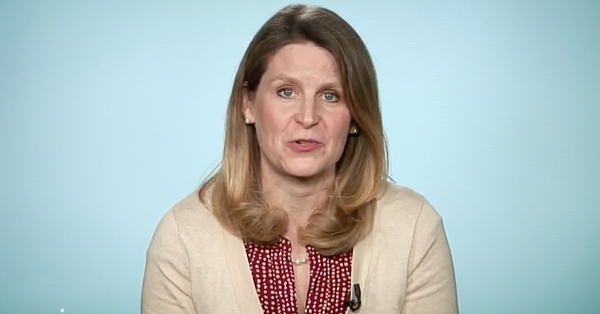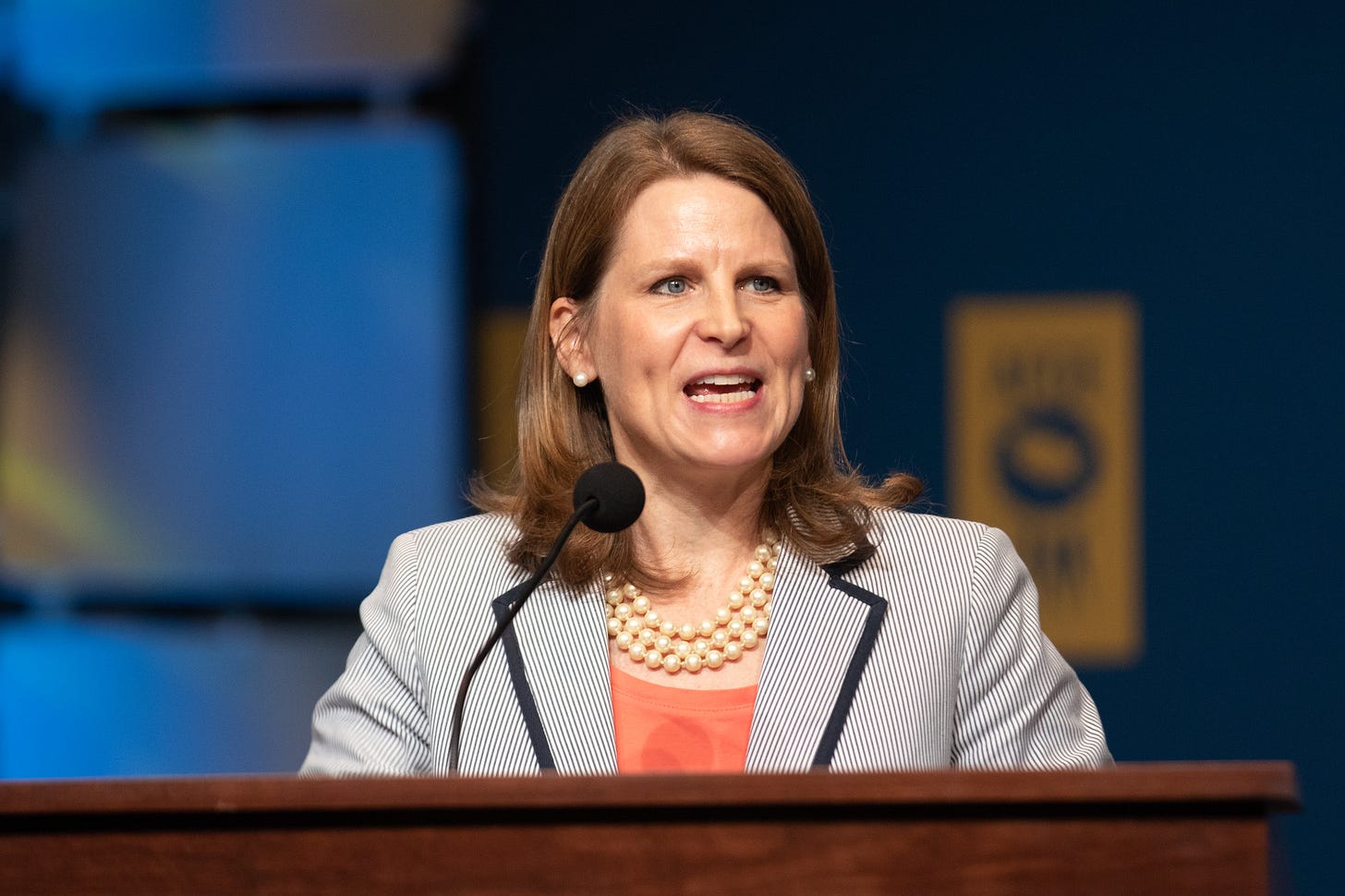Is Labor Finally Going to Stop Giving Democrats a Free Ride?
Liz Shuler just threw down a challenge to the Senate's worst Democrat.
In 2009, organized labor got rolled in the fight to enshrine card check—the right of workers to automatically have their union recognized if a majority of them signed cards declaring their support. Despite a huge Democratic advantage in the House and what was, at the time, a 60-vote Senate majority, conservative Democrats strangled labor's foremost priority early on in the Obama administration.
The man who was about to take the reins of the AFL-CIO at the time said as much himself. "[Labor] could have done a lot of things," Richard Trumka told Politico in August 2009. "But we didn’t, and we are where we are.” A few months later, in a speech at the National Press Club, Trumka warned what would happen if Democrats didn't back up workers.
“There was no way to persuade enough working Americans to go to the polls when they couldn’t tell the difference between the two parties,” Trumka said in his remarks. “Politicians who think that working people have it too good—too much healthcare, too much Social Security and Medicare, too much power on the job—are actually inviting a repeat of 1994.”
Trumka was right: the Democrats got crushed in the 2010 midterms, and many of those who lost their jobs were the very same people who killed card check.
During Trumka's tenure as AFL-CIO president, however, the country's biggest labor federation largely continued to faithfully support Democrats. In 2018-2019, for example, the AFL-CIO spent less than 10 percent of its budget on organizing but more than 35 percent on political activities, according to a leaked copy of the budget that year that our former colleague Hamilton Nolan obtained.
More than a decade after the card check fiasco, organized labor has coalesced around another bill, the Richard L. Trumka PRO Act—renamed for the late labor leader, who died suddenly earlier this month at the age of 72. The PRO Act has been hailed as the most important labor rights legislation in generations, but it is facing a similar fate as card check due to the efforts of, most prominently, a single Democratic senator: Arizona's Kyrsten Sinema. (Sinema is reportedly the only Democrat to not currently support the PRO Act, though other Democrats have said they'd rather keep the filibuster than pass it, meaning provisions of the PRO Act would have to be included in the reconciliation bill—which Sinema also opposes.)

If history is any guide, Democrats are likely to throw the PRO Act overboard, and in response, the most visible instrument of the labor movement is likely to make a lot of angry statements and then do little else. But recent comments from Liz Shuler, Trumka's successor and the first woman to be elected AFL-CIO president, are a promising sign that things might be changing.


Shuler told reporters during a Tuesday press event, per the Hill:
“Workers want to hold elected officials accountable on an agenda that they voted for. Right now that agenda is being blocked by arcane rules in the Senate. We believe that voters will take that into consideration for the next election,” Shuler told reporters during a Tuesday event hosted by the Christian Science Monitor.
“Elected officials, if they’re not listening, that’s when elections end up having consequences,” she added.
Shuler said she backed efforts from local labor groups to push Sinema (and others like Joe Manchin) on ending the filibuster and passing the PRO Act, according to the Washington Examiner. “Those are the decisions that are made at the local level, based on how elected officials perform and the way they vote," Shuler said. "So, I think those discussions will be happening in states like Arizona."
Sinema, the ex-Green Party member who's perhaps best known for dancing on the grave of a federal $15 minimum wage, represents a state that is growing progressively more Democratic, playing a key role in the election of Joe Biden and electing Mark Kelly to the Senate last year. Sinema has nonetheless proceeded to pretend her entire constituency is located in the McCain household, and even Democratic voters absolutely hate her for it—one poll last month found that two-thirds of Arizona Democratic voters support a primary challenge against her in 2024.
There's at least a year and a half until a potential challenge to Sinema really begins to take shape, so it's maybe a bit premature to definitively say that Shuler is going to take a more antagonistic approach towards Democrats than we've seen in recent years. But when potential candidates with an ounce of legitimacy look at public statements like this from the head of a major organ of the progressive movement, it makes them much more likely to think they have a shot against someone like Sinema, who raised more than $22 million for her run in 2018 and already has more than $3.5 million in the bank for 2024.
And when Sinema sees something like this, it might make her think twice about so publicly celebrating her anointment as the One Sane Democrat as she dances on the grave of Biden's agenda. Fat chance, sure, but if Sinema's going to understand anything, it won't be an appeal to her morals—it'll be a threat to her position of power. Shuler's warnings are encouraging. Now it's time for the AFL-CIO to put its money where its mouth is.





